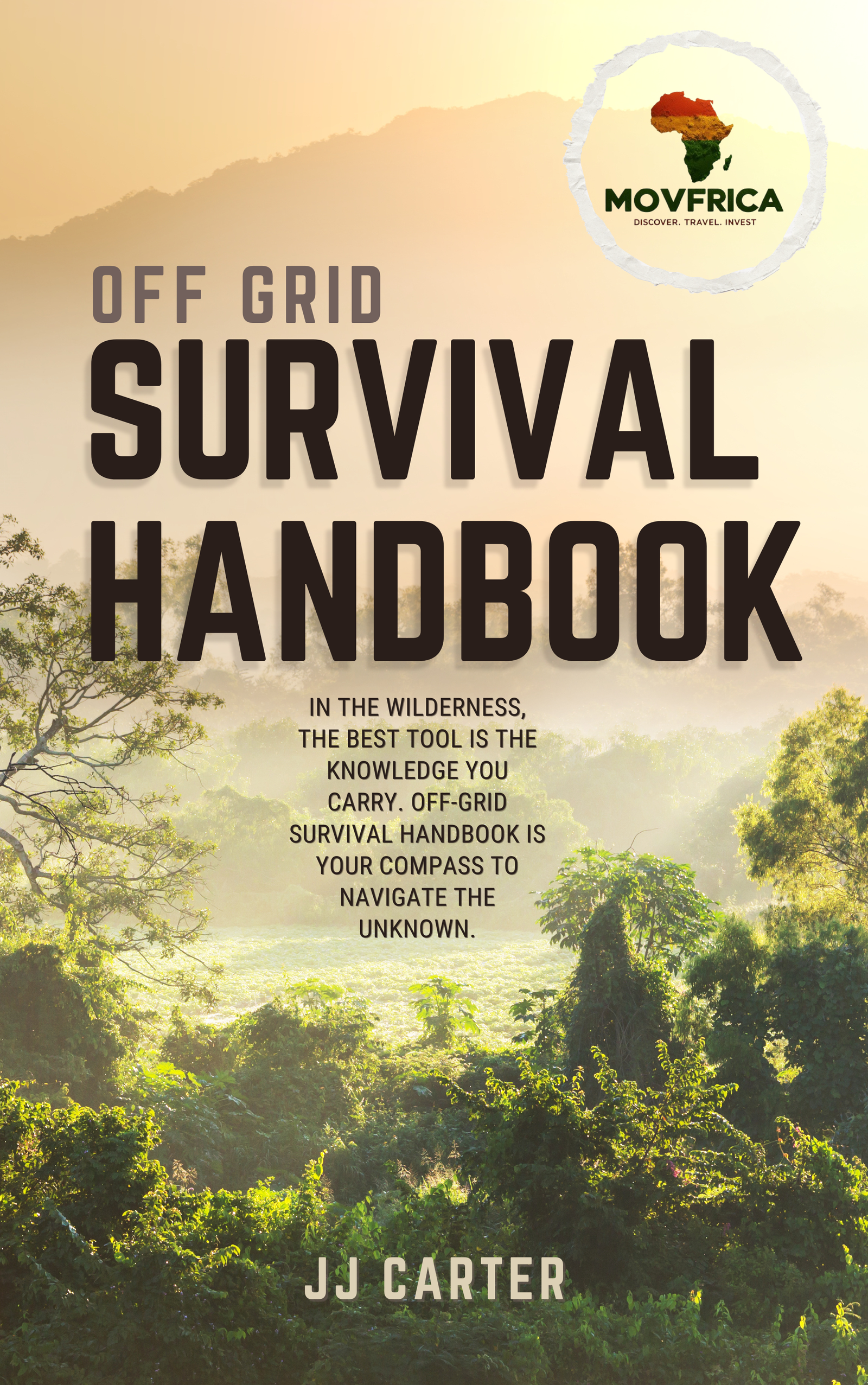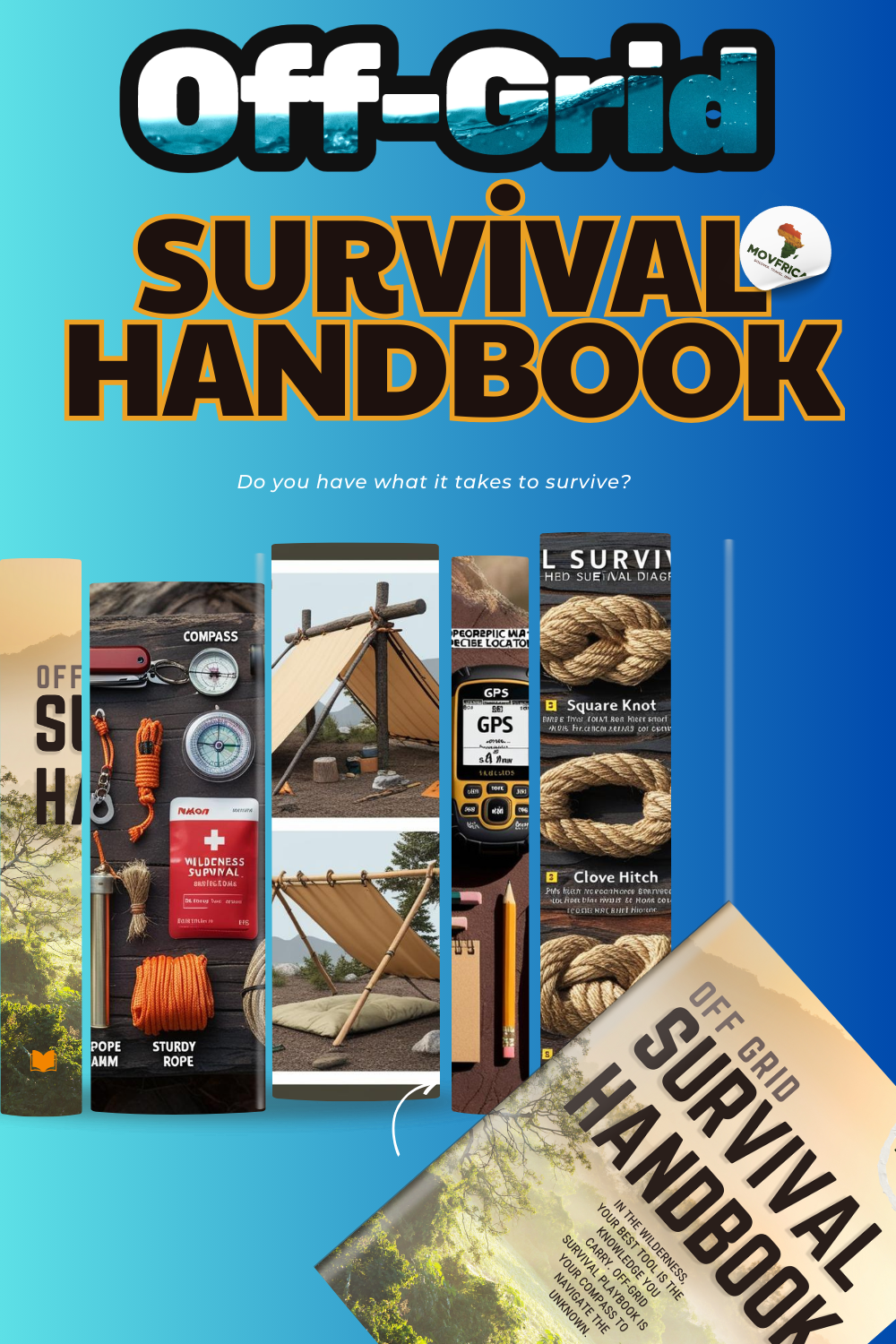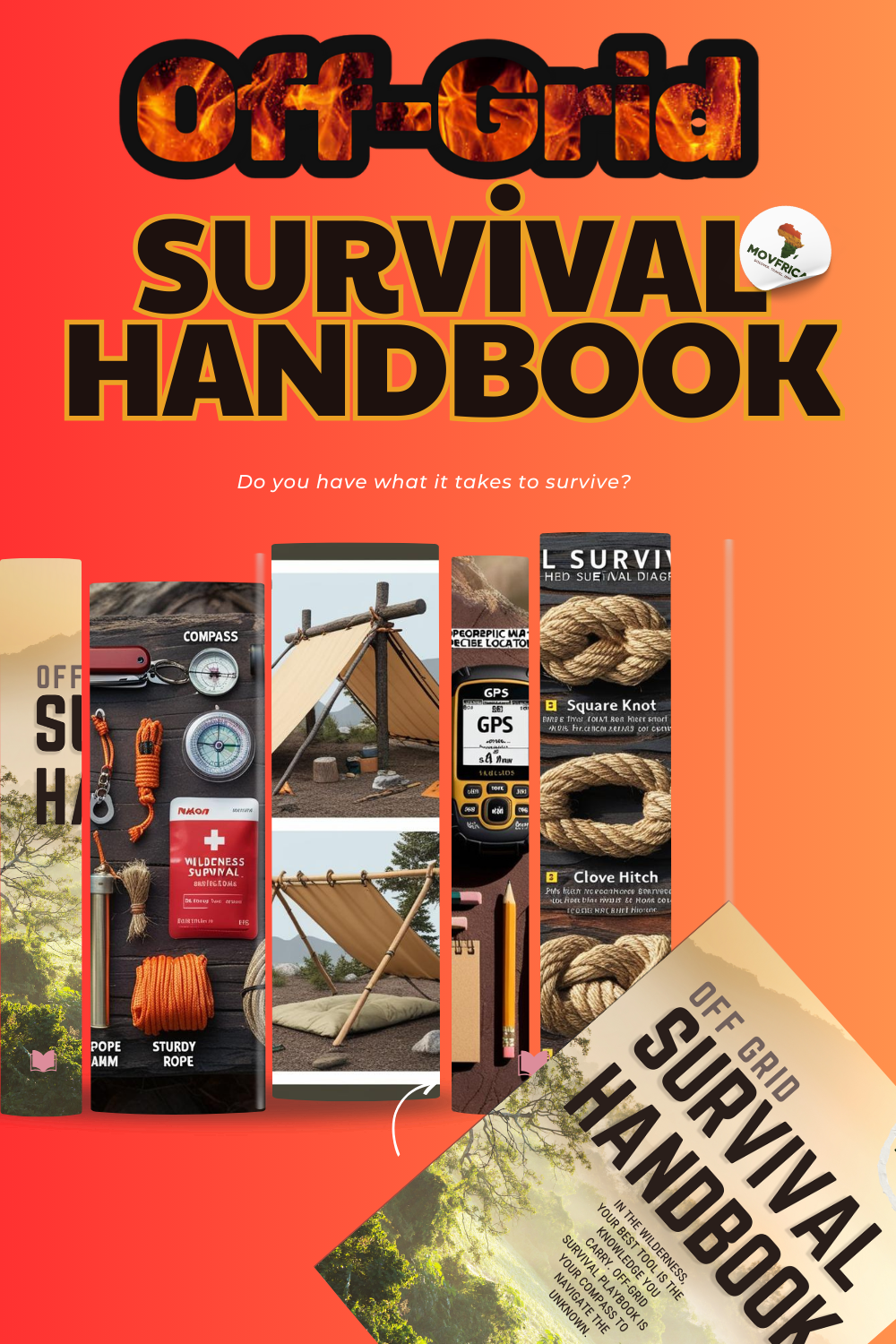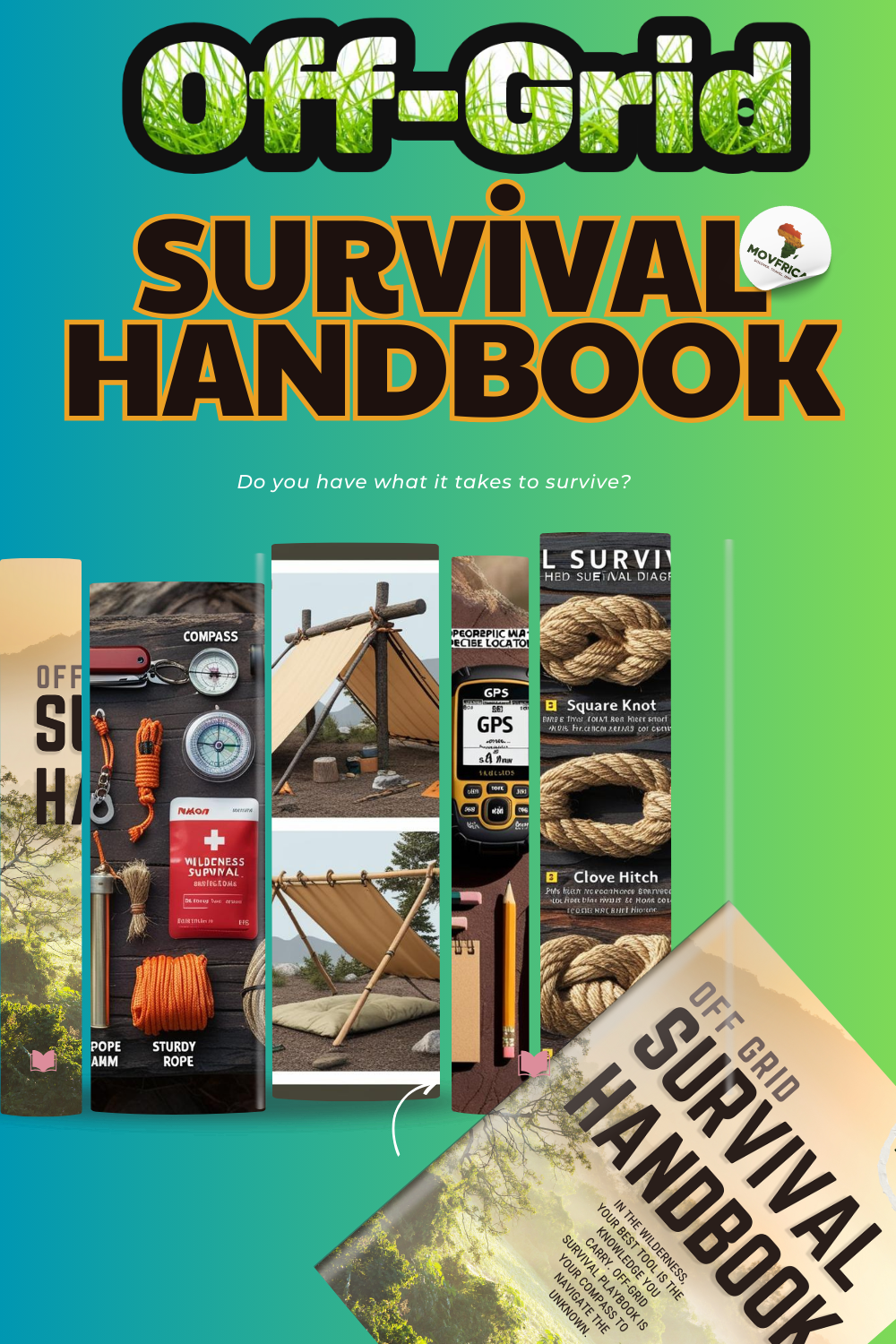Face the forest with confidence.
Order now and unlock the wilderness!
Be Someone who thrives.
Off-Grid Survival Handbook is your all-in-one handbook packed with step-by-step instructions, expert strategies, and proven techniques to keep you prepared for any emergency. From building survival shelters to sourcing clean water, generating renewable energy, and mastering survival skills, this comprehensive guide ensures you and your loved ones stay safe, self-reliant, and ahead of the curve.

100+ Pages of Actionable outdoor Content.
Step-by-step wilderness guide
4K Hi-Def survival illustrations.
whats inside?
access to forest bonus chapters.
Mt. Kilimanjaro Hiking Trail map
Zanzibar Activity Guide,
Receive over $497 worth of survival value absolutely free!
Your survival depends on it.
In a world where most people can’t last a day without their smartphones or Wi-Fi, how far ahead of the pack do you want to be? When disaster strikes—and it will—do you want to be the one scrambling for help, or the one others turn to for survival?
Most people are content to rely on luck or hope for the best, I’m here to give you the ultimate edge. Off-Grid Survival Handbook isn’t just a book—it’s your secret weapon. It’s the competitive advantage that will set you apart when the stakes are highest.

Free hiking and camping Bonuses—when You Act Now!
Order the Off-Grid Survival Handbook in the next 24 hours, you’ll receive exclusive bonuses (valued at $497) absolutely free!
3 Chapter Bonus: Off-Grid Advanced Forest Skills
Learn trapping, hunting, and wilderness resilience techniques.
Mt. Kilimanjaro Hiking Trail Map Bonus
Organize and lead a group in Mt. Kilimanjaro survival scenarios.
Camping Knot Tying Bonus: Knot Tying for Survival
Master essential knots with step-by-step illustrations.
100+ pages of survival insight that will help outdoors in the wilderness, including detailed survival tips, camping hacks and real-world scenarios!
What You’ll Learn in the Off-Grid Survival Handbook:
- Build Sustainable Shelters to Protect Your Family
Creating a secure and sustainable shelter is essential in any survival situation. Start by identifying local materials like wood, leaves, and stones. In cold climates, insulate your shelter with layers of vegetation. For desert environments, prioritize shade and ventilation. Your shelter should protect against harsh weather while blending with the environment for safety.
- Source and Purify Water in Any Environment
Access to clean water is crucial for survival. Locate natural water sources such as rivers, lakes, or dew on plants. Always purify the water by boiling, filtering, or using purification tablets. Solar stills can be a lifesaver in arid regions. Remember to collect rainwater during wet seasons to prepare for droughts.
- Master Firecraft and Bushcraft for Any Skill Level
Fire is indispensable for warmth, cooking, and protection. Learn to start a fire using basic tools like flint, steel, or a bow drill. Practice different methods, such as friction-based techniques or chemical fire starters. Additionally, bushcraft skills like crafting tools, tying knots, and building traps enhance your ability to adapt and thrive in the wilderness.
- Grow Your Own Food and Forage Safely
Developing a sustainable food source is a long-term survival strategy. Begin with a small garden, growing resilient crops like potatoes, beans, or leafy greens. Learn to identify edible wild plants and mushrooms, but always cross-reference with a reliable guide to avoid poisonous varieties. Pair foraging with preservation methods like drying or salting to build a food reserve.
- Handle Emergencies with Confidence Using Proven First Aid Strategies
A solid understanding of first aid can save lives. Carry a comprehensive first aid kit and know how to use every item in it. Learn essential techniques like CPR, wound cleaning, and fracture immobilization. Familiarize yourself with natural remedies to treat minor ailments when medical supplies are scarce.
- Adapt to Mountain, Desert, Rainforest, and Cold Climate Survival
Surviving in different terrains requires specialized knowledge. In mountains, prepare for altitude sickness and rapid weather changes. Deserts demand water conservation and protection from extreme heat. Rainforests call for insect repellents and waterproof gear. Cold climates require layered clothing, fire-making skills, and calorie-dense food to maintain body heat.
ds.
keep ahead of the pack.
If you were dropped into the wilderness right now—no phone, no GPS, no modern conveniences—would you make it through the night? Could you build a shelter, start a fire, or find clean water? Or would you be left at the mercy of the elements, hoping for a rescue that might never come?
The truth is, survival isn’t just a skill for adventurers or extreme athletes. It’s a fundamental human capability—one that’s been dulled by modern comforts but is still within your reach. And in today’s unpredictable world, where storms knock out power, natural disasters strike without warning, and the unexpected lurks around every corner, these skills aren’t just useful—they’re essential.

Gain access to 3 bonus chapters, Mt. Kilimanjaro hiking Trail map and Zanzibar Activity Guide valued at $174, entirely free of charge!
Receive over $497 worth of survival expertise!
Inside, you’ll discover:
🔥 build a survival shelter that shields you from the harshest elements.
🔥 The art of fire-making—even outdoors in the rain without matches.
🔥 Important camping knot-tying techniques that could make the difference between existence and demise.
🔥 Outdoors Water purification methods to turn murky, dangerous water into a life-saving resource and so much more—from forest foraging for food to navigating without a compass!
Don’t hesitate.
Don’t second-guess.
- Group Survival Tactics: Learn how to lead, inspire, and outlast when others are falling apart.
- Fire Crafting Mastery: From zero to flame in minutes—because when the temperature drops, the weak freeze first.
- Water Purification Hacks: Turn the undrinkable into the life-saving, and never let thirst dictate your fate.
- Shelter Building Secrets: Create safety in the most hostile environments, while others are left exposed and vulnerable.
- Wilderness First Aid: When help is hours—or days—away, your skills will be the difference between life and death.

Why buy offgrid survival handbook?
✅ Packed with actionable survival tips for any skill level
✅Covers wilderness food preservation, outdoors first aid, forest navigation, and more
✅ Designed by survival experts with years of experience
✅ Water purification hacks to turn any water source into a lifeline—no fancy gear required.
My Awesome Headline
✅ How to build an unshakable survival shelter—faster and stronger than anyone else.
✅ Fire-starting secrets that work in the forest wind or wilderness rain
✅ Knot-tying mastery that will make you the MacGyver of the wilderness.
✅Foraging skills to find food outdoors when others are starving.
✅Group Survival Dynamics: Lead, collaborate, and keep morale high when the stakes are higher.
Grab your copy of the Off-Grid Survival Handbook today—because the outdoors doesn’t wait, and neither should you!
This is your wake-up call.
You can use this information for more than just wilderness survival. It’s for thriving in a world that’s becoming more unpredictable by the day. Natural disasters, economic instability, and societal breakdowns don’t discriminate—they hit hard and they hit fast. The question is, will you be ready?
Don’t let someone else outprepare you. Don’t let them outthink you. Don’t let them outlast you. The skills in this book aren’t just about survival—they’re about dominance. They’re about being the one who not only makes it through but comes out stronger on the other side.
